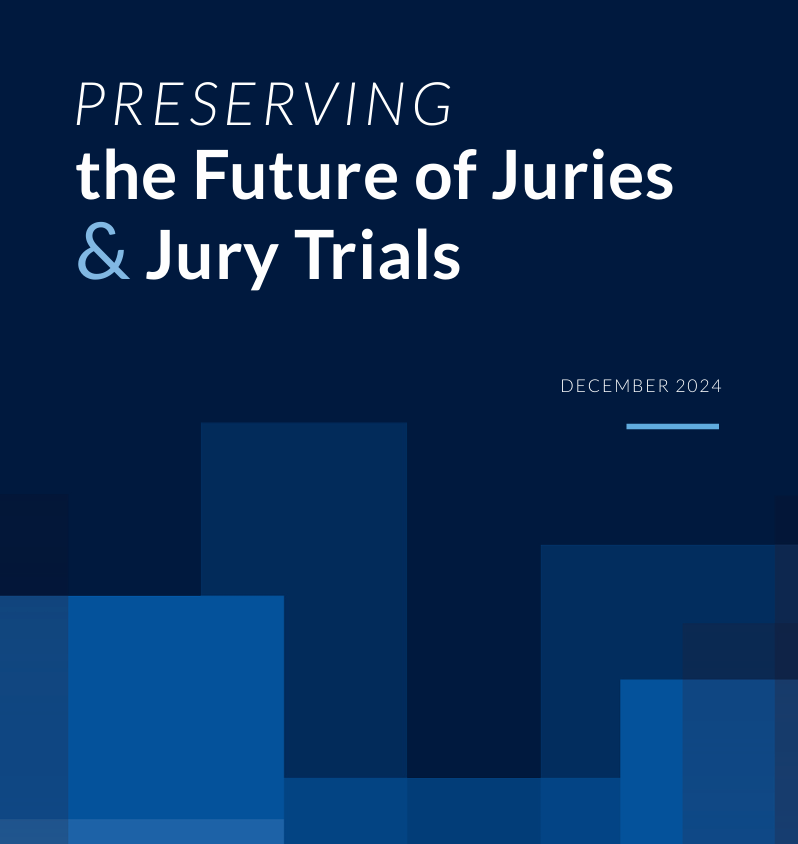Join in on April 23rd from 1:00pm-2:30pm EST for the next webinar in the series to share key findings from the #YouthProtectiveFactorsStudy, hosted by The Council of State Governments (CSG) Justice Center, UMass Chan Medical School, and UC Berkeley’s Risk-Resilience Lab. The webinar—The Influence of Protective Factors and Strength-Based Services on Youth Reoffending—will share key takeaways from the 2nd brief in the study, which will be released in mid-April. This includes results from a first-of-its-kind survey of protective factors administered to almost 2,000 youth across 3 states as part of juvenile justice system intake processes. The webinar will also highlight the specific protective factors that mitigate youth reoffending and the impact of receiving strength-based services on youth recidivism and violence. Principal researchers Dr. Gina Vincent, Dr. Jennifer Skeem, and Josh Weber, who oversees the CSG Justice Center’s juvenile justice work, will share implications for juvenile justice case planning, services, and how jurisdictions can best use limited resources to improve public safety and youth outcomes.
For more information and to register, please go to: The Youth Protective Factors Study: The Influence of Protective Factors and Strength-Based Services on Youth Reoffending – CSG Justice Center
Author: Lauren Curtis
SJI Board Awards FY 2025 Second Quarter Grants
SJI received fourteen (14) grant applications requesting a total of $1,285,848 for the 2nd quarter of FY 2025.
The Board awarded four (4) Strategic Initiative Grants to: the National Center for State Courts (NCSC) to further develop the Court Recruitment System – a state court clerkship application portal; the Institute for Intergovernmental Research for ongoing support to the Reaching Rural: Advancing Collaborative Solutions initiative; the NCSC, in partnership with the Conference of State Court Administrators/National Association for Court Management Joint Technology Committee, Court Information Technology Officers Consortium, and the Integrated Justice Information Systems Institute to engage courts and technology vendors in open discussions about common challenges in working together on technology projects, and identify strategies to mitigate those challenges; and the Institute for the Advancement of the American Legal System to launch a national initiative to address how best to provide legal services to self-represented litigants in high stakes/high risks cases.
One (1) Project Grant was awarded to the Missouri Office of State Courts Administrator to assist local courts with developing Continuity of Operations Plans.
Six (6) Technical Assistance Grant applications were awarded: the Kansas Supreme Court for local strategic planning projects; the National Association for Presiding Judges and Court Executive Officers for educational programming; the City of Beaverton, Oregon, Municipal Court for a caseflow and case management system assessment; the District of Columbia Courts for an interactive web system for the Court of Appeals; the Superior Court of Mohave County, Arizona for a strategic planning process; and the New Mexico Administrative Office of the Courts for an organizational assessment.
Three (3) Curriculum Adaptation and Training Grants were awarded: the Montana Supreme Court to support educational programming for limited jurisdiction judges during the Montana Judicial Institute; the Council of Chief Judges of the State Courts of Appeal for educational programming; and the National Association of State Judicial Educators for training programs that enhance judicial education.
The next deadline for grant applications is May 1, 2025.
FY 2025 2nd Quarter SJI Board Meeting
The FY 2025 2nd Quarter SJI Board Meeting was held this week on Monday, April 7th, 2025, at the Supreme Court of Indiana, in Indianapolis, IN. SJI Executive Director, Jonathan Mattiello, Senior Program Advisor, Michelle White, and members of the SJI Board were joined by Chief Justice Loretta Rush, of the Supreme Court of Indiana.
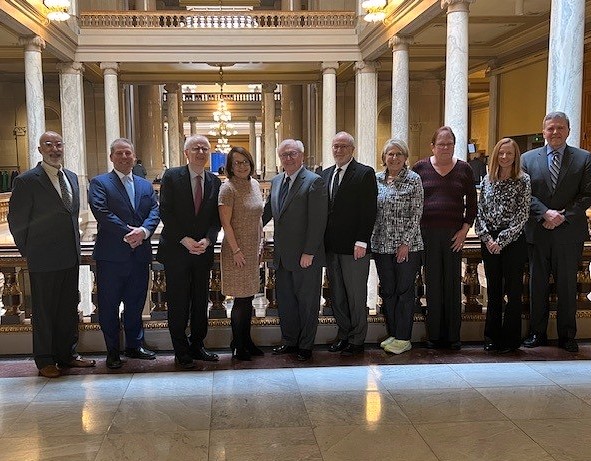
#SJIBoardofDirectors #SJIBoard #StateJusticeInstitute #BoardMeeting #SupremeCourtofIndiana
Transformation of Youth Justice Symposium – Learn, Connect, and Innovate in San Diego!
On June 18th-20th, 2025, in vibrant San Diego (La Jolla), CA, the Transformation of Youth Justice Symposium will provide unique opportunities to learn, connect, and contribute to the nationwide momentum improving outcomes for children, families, and communities through enhanced youth justice system approaches and practices. Hosted by the Robert F. Kennedy National Resource Center for Juvenile Justice, this engaging 2.5-day event is designed to empower multi-disciplinary professionals and youth-serving stakeholders committed to advancing effective and innovative system change. Plenaries, workshops, and interactive sessions will spotlight research-informed and evidence-based reforms that are measurable, sustainable, and replicable in any community. With an emphasis on peer learning and dynamic interaction, attendees will network with distinguished experts, prominent state and local leaders, and colleagues who have championed innovative policy and practice changes. The event will also amplify the voices of advocates with lived experience and showcase emerging leaders driving change in youth justice.
Don’t miss the opportunity to be part of this important movement! Learn more and register today at: www.rfknrcjj.org
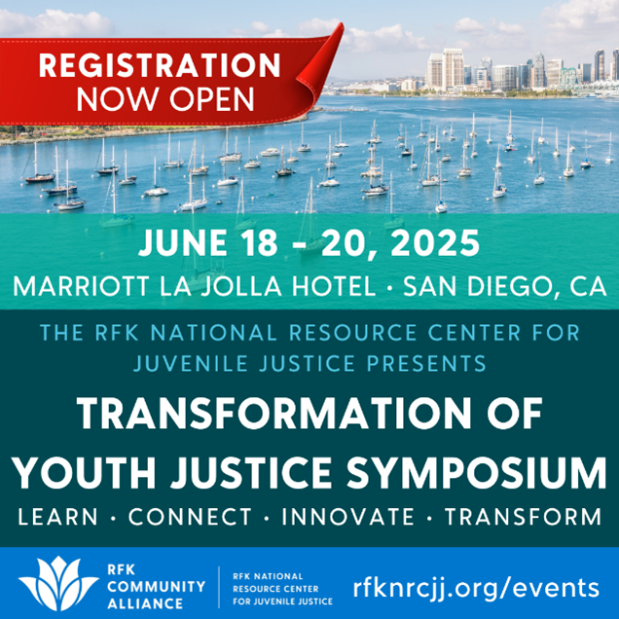
Upcoming Webinar! Deepfakes: Evidentiary Issues for State Courts
When? Wednesday, April 16th at 1:00PM EST.
Courts are now exploring options to leverage #artificialintelligence (AI) to enhance operations and support staff. Join us for the latest session in our AI and the Courts webinar series, featuring a discussion of real-world applications of AI tools.
This webinar will discuss #evidentiary issues raised by #AI. While fabricated evidence is not a new problem in state courts, the accessibility of AI has made it easier to enhance, alter, or create evidence. Such evidence may take two forms: one where all parties agree that AI has been used in the production of evidence, such as enhancement of a photo or audio (acknowledged AI-generated evidence); and a second where AI has been used, or is alleged to have been used, without disclosure and with an intention to mislead (unacknowledged AI-generated evidence).
Join the National Center for State Courts on Wednesday, April 16th at 1:00PM EST for this informative session.

Civil Protection Order Portal Project Aims to Improve Process for Survivors of Domestic Violence
For survivors of domestic violence, obtaining a protection order can be daunting. Fear, confusion, limited resources, and the ongoing threat posed by their abusers often prevent individuals from seeking help through the court system.
The National Center for State Courts (NCSC) is working to improve the civil protection order process by making it more accessible, efficient, and fair using secure, user-friendly virtual portals with support from the U.S. Department of Justice’s Office on Violence Against Women.
“Survivors needing protection shouldn’t have to navigate a complex or intimidating process,” said Sarah Vandenberg Van Zee, NCSC court management consultant and project manager. “Through this project, we’re developing national guidance to enhance virtual court portal technology to uphold safety, accessibility, and due process in cases involving domestic violence, dating violence, sexual assault, and stalking.”
Learning collaborative
This project brings together a learning collaborative that includes technologists, access-to-justice leaders, and experienced courts from Arizona, Kansas, and Indiana that have successfully implemented innovative e-filing and portal systems.
Vandenberg Van Zee explained that portals can do more than facilitate document filing; they can also serve as centralized platforms where all parties can complete necessary tasks, access resources, and receive timely case updates.
Seeking pilot courts
To further develop and refine best practices for portal technology, NCSC is seeking learner courts—jurisdictions interested in piloting the recommended guidance established by this project—to join the learning collaborative.
Selected courts will receive hands-on technical assistance to implement or enhance court portal technology to:
- Support survivor safety
- Enhance access to justice and the user experience
- Work with national experts
- Contribute to national best practices/guidance
For more information: Civil Protection Order Portal Technical Assistance Project | VAWA
Read the full article here: Civil protection order portal project aims to improve process for survivors of domestic violence | NCSC
Preserving the Future of Juries and Jury Trials
A new report, Preserving the Future of Juries and Jury Trials, offers strategies to combat these critical challenges that threaten the existence and legitimacy of our jury system while also suggesting strategic solutions to preserve its future.
“We need to take action, or we risk losing a living component of justice,” warns Paula Hannaford-Agor, director of NCSC’s Center for Jury Studies. “This report is a starting point for continued conversations about where we need to go to strengthen jury trials.”
The report identifies four key vulnerabilities and outlines a plan to preserve and improve the jury system:
- ⚬ Foster Public Education and Engagement About the Jury System
- ⚬ Focus on the Juror-Centered Experience
- ⚬ Increase Capacity and Incentives for Jury Trials
- ⚬ Identify and Address Disparities Between Values and Practices
Access the report here: Preserving the Future of Juries and Jury Trials
Stakeholders Gather to Map Future of Legal Education
As it gears up to finalize recommendations, the Conference of Chief Justices and Conference of State Court Administrators (CCJ/COSCA) Committee on Legal Education and Admissions Reform (CLEAR) held a National Convening on the Future of Legal Education and Admissions last week at the University of Cincinnati College of Law. The convening was in partnership with the American Bar Association (ABA) Council on Legal Education and Admissions, the Association of American Law Schools (AALS), AccessLex Institute, the Law School Admission Council, the Law School Survey of Student Engagement, the National Conference of Bar Examiners, and the National Association of Law Placement.
CLEAR background
Established by an August 2023 joint resolution of CCJ/COSCA, CLEAR has a broad mandate to assess the current state of legal education, define standards for minimum competence to practice law and the skills necessary to be practice-ready upon graduation, and identify ways to prepare and incentivize public interest lawyering.
The March 14 national convening brought together a diverse array of stakeholders from law school deans, bar educators, bar admissions, the courts, and the practicing bar to tackle the evolving challenges confronting the legal profession and to brainstorm innovative solutions for legal education and bar admissions.
Read the full article from NCSC here: Stakeholders gather to map future of legal education | NCSC
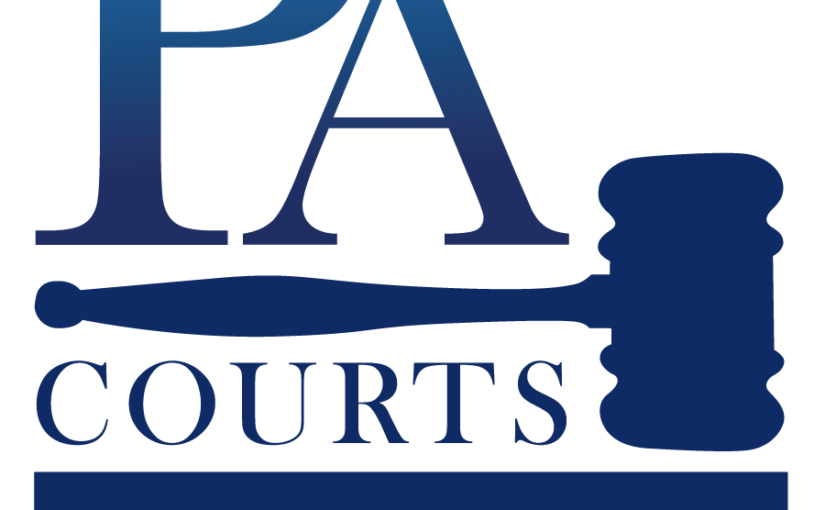
Pennsylvania Statewide Behavioral Health & Recovery Summit – Administrative Office of Pennsylvania Courts
In October 2024, the Pennsylvania Courts held a first-ever statewide Behavioral Health Summit that brought together over 500 judges, leaders, and stakeholders to address the growing behavioral health crisis within the judicial system. Pennsylvania Supreme Court Justice Kevin Dougherty emphasized the increasing severity and frequency of behavioral health challenges and called the summit a “call to action” to improve court responses and support justice-involved individuals with behavioral health needs.
The summit, hosted in partnership with the Pennsylvania Commission on Crime and Delinquency (PCCD), fostered collaboration among judges, county and state leaders, and advocates. It highlighted the importance of both education and building relationships in creating informed solutions that positively impact the community. This initiative seeks to develop comprehensive strategies that address behavioral health issues and ensure both effective legal proceedings and compassionate, trauma-informed care.
A significant prior step in this effort was the establishment of the Office of Behavioral Health by the Pennsylvania Courts last year. This office is focused on promoting best practices at the intersections of at-risk populations and the courts. It is also dedicated to providing training and educational resources for judges, ensuring they are equipped to navigate cases involving those with behavioral health challenges. Key areas of focus include truancy, domestic relations, juvenile delinquency, criminal justice, and civil commitments.
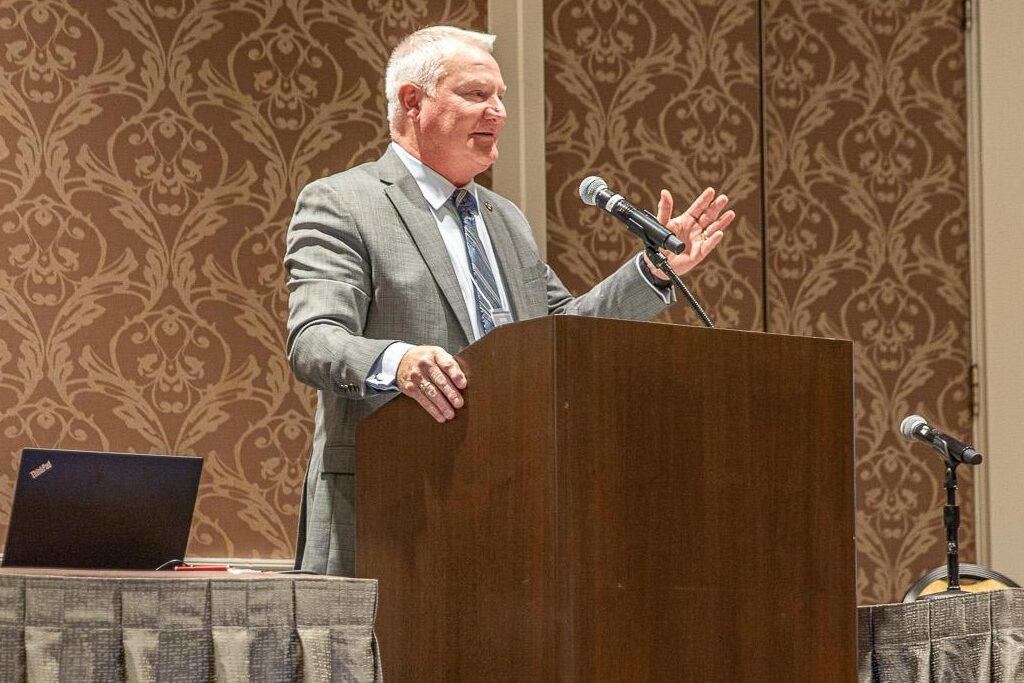
The office is currently supporting the establishment of seven judicially led, behavioral health regional councils to ensure ongoing collaboration and progress. The councils will launch via regional summits across Pennsylvania with a focus on helping county leaders to understand and engage the legislature and stakeholders on regional priorities.
Leading Change in Trial Courts Webinar
#UpcomingWebinar! Leading Change in Trial Courts – Thursday, April 3rd, 2025, at 3:00PM EST.
For more information and to register: Webinar Registration – Zoom


